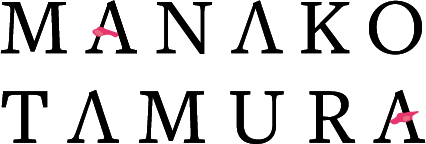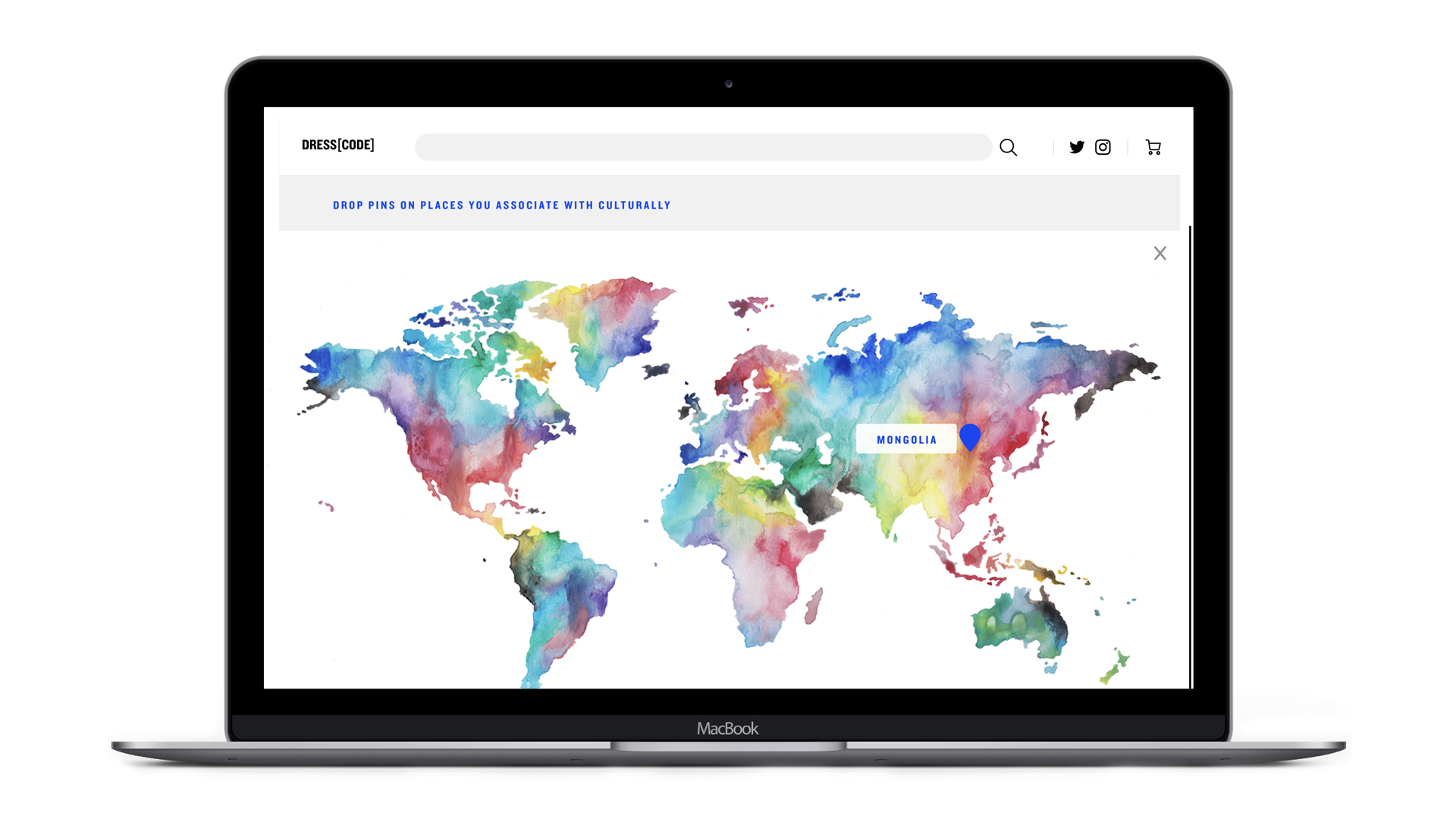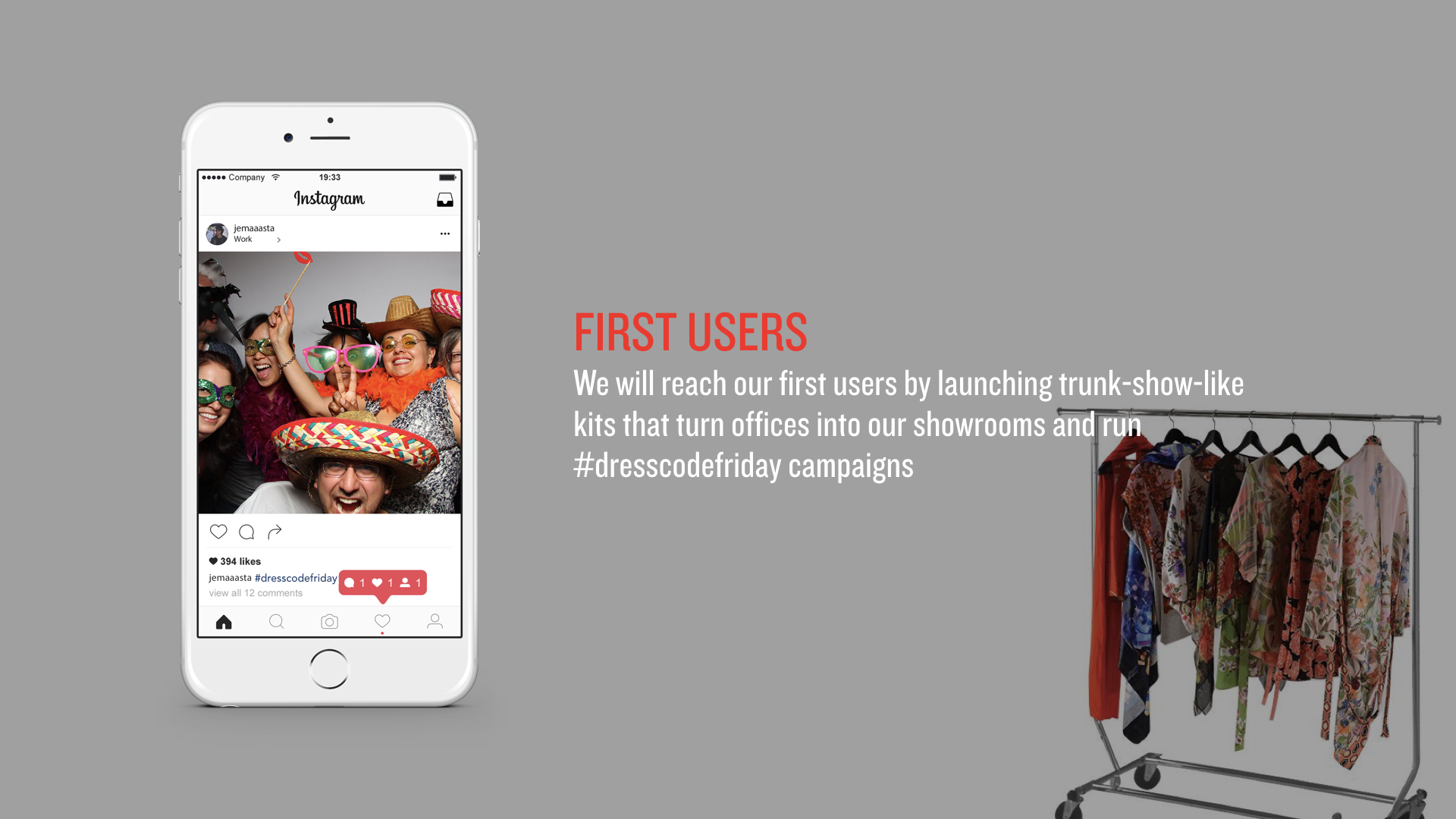The Challenge
Many intercultural people share the feeling that they are “impostors,” not having the right to claim the cultures and races associated with their identity
The Outcome
A database that comprises traditional clothes referenced in contemporary fashion so it can help you shop clothes that are culturally authentic to you
What It Is
Dress Code is a culturally authentic shopping platform that empower you to find clothes that are just as multi-cultural as you are. Through its database of tags that identify the cultural influences in pieces of clothing, it curates and suggests clothes that were inspired by your heritage. With Dress Code, you can own fashion in a way that is authentic to you not just stylistically but also culturally.
How It Works
When you sign up to Dress Code, you are asked to drop pins on a map to identify cultures associated with your identity. Then, it curates and suggests clothes for you to buy, and you can purchase clothes from various brands that partner with Dress Code and sell their products on its platform.It works great as a shopping platform, but it also serves as an educational platform. Through tapping on the specific cultural inspirations, you can learn about its tradition and craftsmanship that makes it unique.
First User Acquisition
#dresscodefriday social media campaign as part of the first user acquisition for this service. The campaign is essentially a costume office party where Dress Code would deliver a trunk-show-like kit of cultural clothes, tailored to the heritage of coworkers who sign up to the service, and they dress up and party in their office. Their posts and feeds would increase traffic to Dress Code, and whatever the users decide to keep, they can purchase the clothes after the party.
User Journey - onboarding for #DRESSCODEfriday
Dress Code as Plugins
Alexa Skill
Smart clothes are already tracking heart rates and body temperatures, and soon the micro-chips embedded in them will be able to seamlessly sync information with another device. That's when Dress Code could be used as an Alexa Skill. With a simple question, "Alexa, what am I wearing?" Alexa will sync with your clothes, check the Dress Code database, and tell you all about the cultural influences behind what you're wearing. It might even be your personal advisor, cautioning you when it's inappropriate to a wear certain clothes, given their cultural implications. And of course, it would work great with Echo Look.
Previous Iterations
Imagining the service on a smart mirror
Idbo - which comes from "identity borrowing" is the service previously imagined for DRESS CODE. I first framed it as a as an app to be used on a smart mirror so that users could virtually try on clothes and experiment in the comfort of their homes.
However, it became clear upon further developing the concept that the project had more potential as a database of cultural influences and that it did not have to rely on the technology of smart mirrors. Therefore, I explored different outlets and use cases for the database: smart phone app, website platform, and plug-ins on other shopping platforms.
Examples of Smart Mirrors
Duo Home Smart Mirror (available for pre order for $399)
Oak Labs' Smart Mirror at Rebecca Minkoff and Ralph Lauren stores
TagS
In addition to the tags used to identify cultural inspirations on the digital platforms, the garment would also have a physical tag that summarizes the cultural inspiration behind the item, thus reinforcing the platform's mission.
Brand Partnership
Cultural appropriation, which is a practice of taking inspiration from cultures other than your own without crediting them, is common in the fashion industry. In the first iteration of the project, I imagined that the smart mirror app may be selective in the brands that they represent. So that only ethical brands like Stella McCartney could be on it. By selecting to represent only those brands that align with Idbo’s mission, it would force more designers to be honest about the cultures that inspired their designs.


















